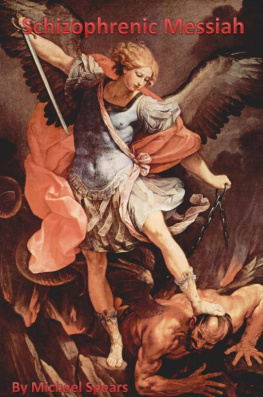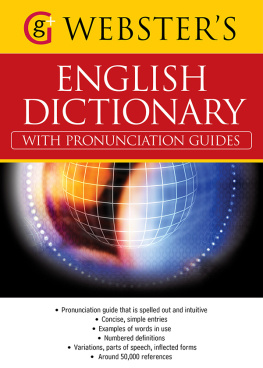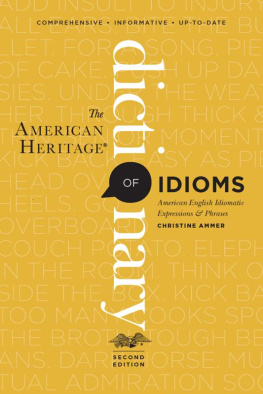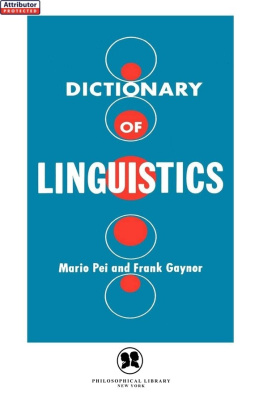

Copyright 2007 by The McGraw-Hill Companies, Inc. All rights reserved. Printed in the United States of America. Except as permitted under the United States Copyright Act of 1976, no part of this publication may be reproduced or distributed in any form or by any means, or stored in a database or retrieval system, without the prior written permission of the publisher.
ISBN: 978-0-07-171238-5
MHID: 0-07-171238-0
The material in this eBook also appears in the print version of this title: ISBN:978-0-07-147893-9, MHID:0-07-147893-0.
All trademarks are trademarks of their respective owners. Rather than put a trademark symbol after every occurrence of a trademarked name, we use names in an editorial fashion only, and to the benefit of the trademark owner, with no intention of infringement of the trademark. Where such designations appear in this book, they have been printed with initial caps.
McGraw-Hill eBooks are available at special quantity discounts to use as premiums and sales promotions, or for use in corporate training programs. To contact a representative please e-mail us at bulksales@mcgraw-hill.com.
TERMS OF USE
This is a copyrighted work and The McGraw-Hill Companies, Inc. (McGraw-Hill) and its licensors reserve all rights in and to the work. Use of this work is subject to these terms. Except as permitted under the Copyright Act of 1976 and the right to store and retrieve one copy of the work, you may not decompile, disassemble, reverse engineer, reproduce, modify, create derivative works based upon, transmit, distribute, disseminate, sell, publish or sublicense the work or any part of it without McGraw-Hills prior consent. You may use the work for your own noncommercial and personal use; any other use of the work is strictly prohibited. Your right to use the work may be terminated if you fail to comply with these terms.
THE WORK IS PROVIDED AS IS. McGRAW-HILL AND ITS LICENSORS MAKE NO GUARANTEES OR WARRANTIES AS TO THE ACCURACY, ADEQUACY OR COMPLETENESS OF OR RESULTS TO BE OBTAINED FROM USING THE WORK, INCLUDING ANY INFORMATION THAT CAN BE ACCESSED THROUGH THE WORK VIA HYPERLINK OR OTHERWISE, AND EXPRESSLY DISCLAIM ANY WARRANTY, EXPRESS OR IMPLIED, INCLUDING BUT NOT LIMITED TO IMPLIED WARRANTIES OF MERCHANTABILITY OR FITNESS FOR A PARTICULAR PURPOSE. McGraw-Hill and its licensors do not warrant or guarantee that the functions contained in the work will meet your requirements or that its operation will be uninterrupted or error free. Neither McGraw-Hill nor its licensors shall be liable to you or anyone else for any inaccuracy, error or omission, regardless of cause, in the work or for any damages resulting therefrom. McGraw-Hill has no responsibility for the content of any information accessed through the work. Under no circumstances shall McGraw-Hill and/or its licensors be liable for any indirect, incidental, special, punitive, consequential or similar damages that result from the use of or inability to use the work, even if any of them has been advised of the possibility of such damages. This limitation of liability shall apply to any claim or cause whatsoever whether such claim or cause arises in contract, tort or otherwise.
What Is an Idiom?
A phrase or sentence linked to a meaning that is different from the literal meanings of its component words is described as idiomatic and is called an idiom. Most idioms are found embedded in sentences and are sometimes difficult to isolate and extract.
English, like other languages, has many of these phrases or sentences that cannot be understood literally. Even if you know the meaning of all the words in a phrase and understand all the grammar of the phrase completely, the meaning of the phrase may still be puzzling. Many proverbs, informal phrases, and common sayings offer this kind of problem. This dictionary is a collection of the idiomatic phrases and sentences that occur frequently but not exclusively in American English. A large percentage of the idioms listed here are also found in other national varieties of English.
Quick-Start Guide
A. If you are confident that you know the exact wording of the idiom you are seeking, simply look it up directly in the dictionary. The, A, and An at the beginning of the idiom are ignored in alphabetizing. Consult the next section, How the Dictionary Works, for instructions on how to interpret the entries.
B. If you are uncertain about the exact wording of an idiom, look up any major word (i.e., verb, adjective, adverb, or noun) in the Key Word Index. Do the exercise (see #15 on page xxi) to gain skills in isolating the idiom from the rest of the sentence. Search the index until you find a sequence that matches the idiom you are seeking. Then look up that idiom in the dictionary. There is more information at the beginning of the index on page 591.
How the Dictionary Works
The following sections are numbered sequentially, since there is cross-referencing between the sections. Here is a directory:
Terms, Symbols, and Type Styles
Fixed and Variable Idioms
Optional Elements
Variable Elements
Movable Elements and the Dagger
Someone vs. One
The Asterisk, Swung Dash, and Shared Idiomatic Core
Brackets and Extra Information
Alphabetization, Organization, and Synonym Clusters
The Key Word Index and Search Strategies
. Origins
Taboo and Proscribed Words
Slang vs. Idiom
Illustrations
Exercise
New in the Fourth Edition
Reference Works Mentioned
1. Terms, Symbols, and Type Styles
 (a square) is found at the beginning of an example. Examples are printed in italic type. Words emphasized within an example are printed in roman (not italic) type.
(a square) is found at the beginning of an example. Examples are printed in italic type. Words emphasized within an example are printed in roman (not italic) type.
(a dagger) follows a movable element. (See #5.)
* (an asterisk) stands for a short list of words or phrases that are part of an entry head, as with *above suspicion where the * stands for be, keep, remain. (See #7.)
(a swung dash) stands for any entry head at the beginning of the entry block in which the swung dash is used. (See #7.)
( ) (parentheses) enclose optional elements and explanatory comments such as origins, etymologies, cross-referencing, and additional entry heads formed with the swung dash. (See #3.)
[ ] (brackets) enclose information in a definition that is necessary for the understanding of the entry head. (See #8.)
AND introduces synonymous entry heads or additional entry heads after a sense number. Additional synonymous entry heads are separated by semicolons (;). (See #9.)
entry block refers to a paragraph starting with a boldface word or phrase and including all the senses and examples. This replaces entry, which is ambiguous.
entry head refers to the phrase(s) found starting an entry block. An entry head is what the definition explains. An entry head is printed in
Next page










 (a square) is found at the beginning of an example. Examples are printed in italic type. Words emphasized within an example are printed in roman (not italic) type.
(a square) is found at the beginning of an example. Examples are printed in italic type. Words emphasized within an example are printed in roman (not italic) type.